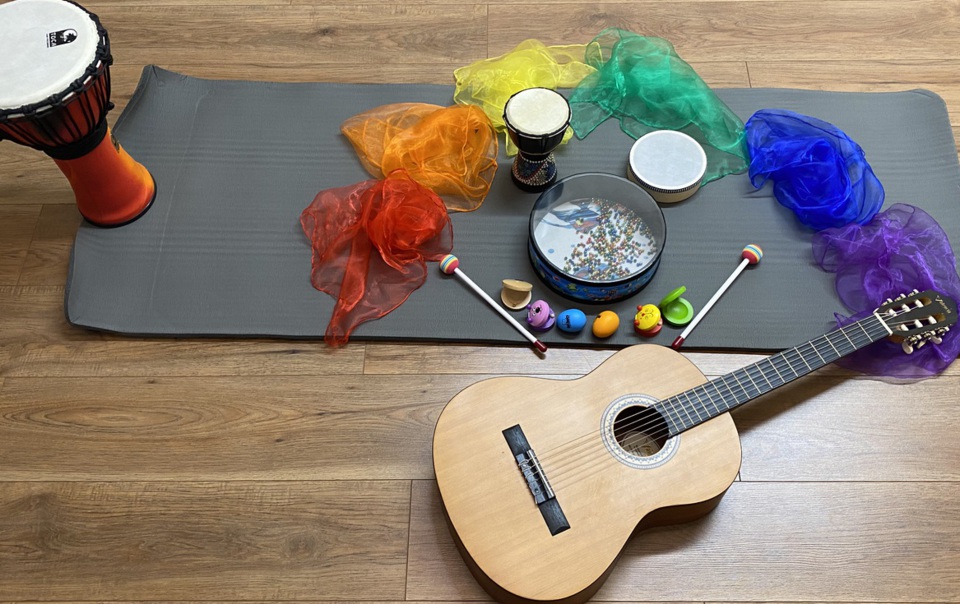What is Music Therapy?
Music therapy (music psychotherapy) is an evidence-based psychological clinical intervention that uses music to support clients’ emotional, cognitive, physical and social needs.
Neurologic Music Therapy is a specific music therapy approach offering interventions that look at functional needs and how music / auditory stimulation can help the brain with cognitive, speech and language and sensorimotor functions.
Music is one of the few activities known to be used by and 'light up' the whole brain and has been used for thousands of years as a form of healing.
Music offers a powerful way to communicate and connect, especially where words may not be possible or available for whatever reason.
You do not need to have musical experience or skills to receive music therapy.
Music therapists work by developing a trusting therapeutic relationship through musical interactions, listening, music-making and where appropriate conversation and use this shared experience to help clients express and address their therapeutic needs.
Sessions might include a range of tuned and untuned percussion that anyone can play, as well as voice and other sounds plus well-known and recorded music.
People who may benefit include those who have been affected by injury, illness or disability or those with other mental health, emotional or communication needs.
All music therapists in the UK must be registered with the HCPC (Health and Care Professions Council) and are recognised as allied healthcare professionals.
What happens in a music therapy session?
Sessions are typically 30-40 minutes long for children and 40-50 minutes for adults.
Therapy may include musical improvisation and music making, working with familiar or new songs, listening to music, songwriting, reflection,
psycho-education and creative play.
Music therapy is suitable for everyone, whether they have musical experience or not.
A range of instruments will be available for use including tuned and untuned percussion and often guitar and keyboard. Sessions might also include using your voice or other items to create sounds, including digital apps or software. If you play an instrument you may wish to bring it with you.
In Neurologic Music Therapy we may look at exercises involving music or instruments to 'train' the brain of body to work in the way you want.
Holly’s approach includes psychodynamically informed thinking and reflections and an integrative approach which may, where appropriate, draw from trainings and experience in areas such as play, trauma-informed expressive arts, sensorimotor and body-based work and mindfulness.
Client groups
Areas of work are wide ranging and include adults and children. Some of the people I work with include those with needs relating to:
ALN; Anxiety; Autism; Brain injury; Burnout; Communication; Confidence and identity; Dementia; Depression; Developmental delay; Emotional wellbeing; Grief and loss; Mental health; Life changes; Palliative care; Parent/caregiver & child / family; Physical disability; PMLD; Stress; Stroke; Neurological Conditions; and Trauma related stress.


